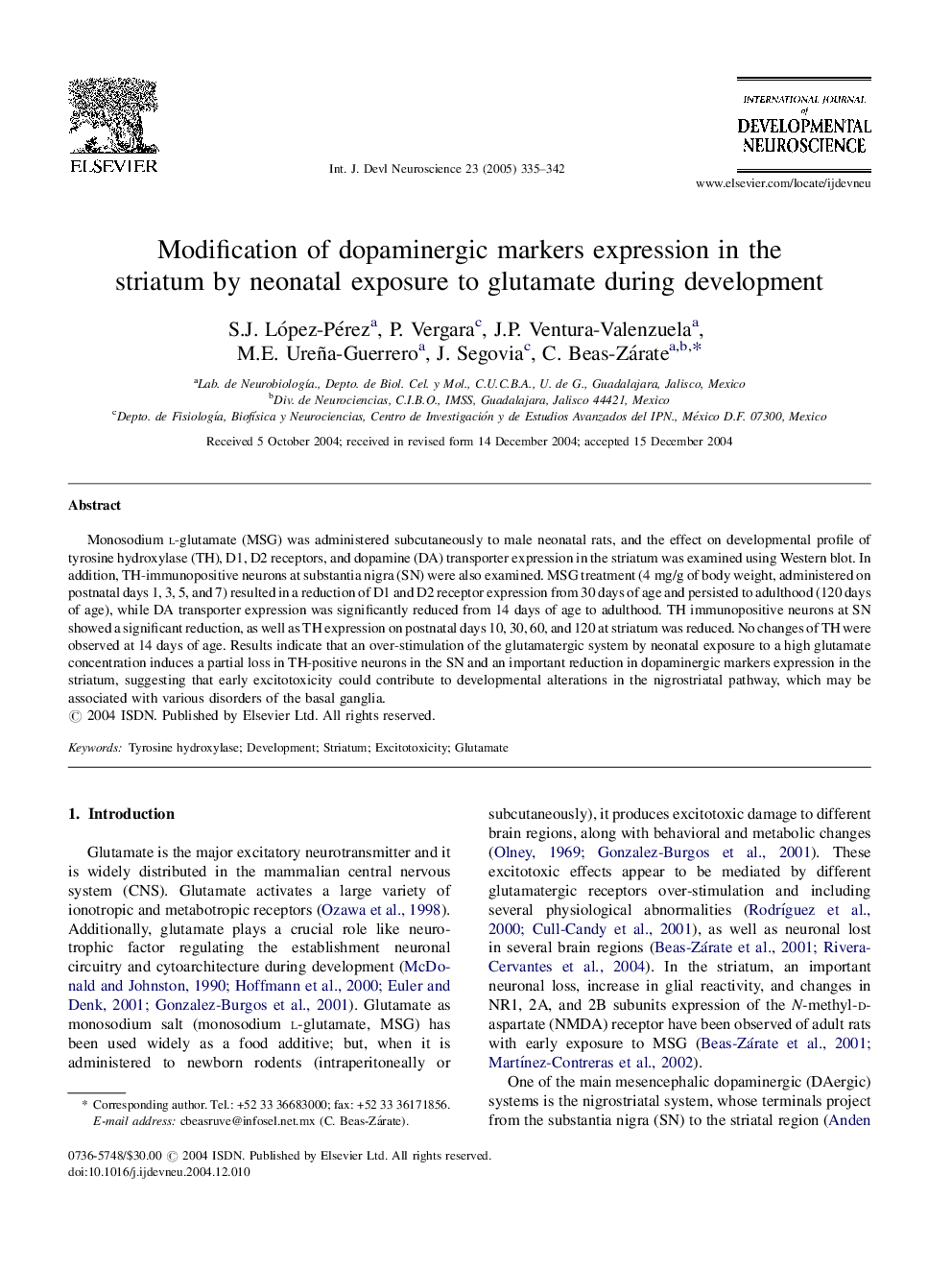| Article ID | Journal | Published Year | Pages | File Type |
|---|---|---|---|---|
| 9933584 | International Journal of Developmental Neuroscience | 2005 | 8 Pages |
Abstract
Monosodium l-glutamate (MSG) was administered subcutaneously to male neonatal rats, and the effect on developmental profile of tyrosine hydroxylase (TH), D1, D2 receptors, and dopamine (DA) transporter expression in the striatum was examined using Western blot. In addition, TH-immunopositive neurons at substantia nigra (SN) were also examined. MSG treatment (4Â mg/g of body weight, administered on postnatal days 1, 3, 5, and 7) resulted in a reduction of D1 and D2 receptor expression from 30 days of age and persisted to adulthood (120 days of age), while DA transporter expression was significantly reduced from 14 days of age to adulthood. TH immunopositive neurons at SN showed a significant reduction, as well as TH expression on postnatal days 10, 30, 60, and 120 at striatum was reduced. No changes of TH were observed at 14 days of age. Results indicate that an over-stimulation of the glutamatergic system by neonatal exposure to a high glutamate concentration induces a partial loss in TH-positive neurons in the SN and an important reduction in dopaminergic markers expression in the striatum, suggesting that early excitotoxicity could contribute to developmental alterations in the nigrostriatal pathway, which may be associated with various disorders of the basal ganglia.
Related Topics
Life Sciences
Biochemistry, Genetics and Molecular Biology
Developmental Biology
Authors
S.J. López-Pérez, P. Vergara, J.P. Ventura-Valenzuela, M.E. Ureña-Guerrero, J. Segovia, C. Beas-Zárate,
